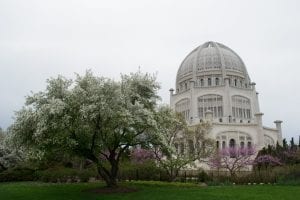Baha’i Funeral Customs and Rituals

Overall, Baha’i funeral customs are relaxed and designed to accommodate the personal preferences of the family. In general, they can be characterized by simplicity and flexibility.
The customs are largely based on the faith’s teachings regarding consciousness and the soul and take into account the fact that people of the Baha’i faith come from a wide range of cultures and ethnicity.
Much of the popular literature regarding the history of the Baha’i faith relates its origins to Shiite Islam. The teachings of the faith itself, however, indicate that this relationship is a misconception (bahai-library.com). Baha’i is a totally independent religion that is not considered to be a sect of Islam.
Siyyid ‘Ali Muhammad Shirazi (1819-1850), was a young Iranian man who a central figure in the birth of the Baha’i faith. Shirazi is referred to as ‘The Bab’ and is regarded by Bahá’í as the most recent in the line of Messengers of God that includes Abraham, Moses, Buddha, Zoroaster, Christ, and Muhammad. The Bab foretold the coming of Baha’u’llah, the founder of the Baha’i faith. Baha’u’llah was a follower of the Bab and claimed to be the fulfillment of the Bab’s prophecy. Baha’u’llah was succeeded by Abdu’l-Bahá, who spread Bahá’í teachings around the world. The faith took hold and established significant (though small) communities in Europe and North America. Abdu’l-Bahá developed Baha’i’s ideas of social reform and international justice and expounded Bahá’í beliefs through a series of letters.
At the core of the Baha’i belief is the unity of all religions and humanity. The Baha’i regard Jesus, Muhammad, Krishna, Buddha, and Jewish prophets and other prophets as manifestations of God’s divine presence. They believe that other prophets will come, but there is no ultimate “savior” or final prophet.
In terms of death, the Baha’i faith teaches that there is a separate consciousness or soul for every human. Upon death, the soul is relieved of physical bonds and enters the spiritual world, a timeless extension of the universe. Spiritual development determines whether one is closer or farther from God.
Baha’i funeral customs and practices do not permit embalming unless it is required by law. Cremation is also not permitted. The Baha’i faith does not prohibit the donation of the body to medical science.
The body is prepared by careful washing and wrapping in a white shroud. A burial ring with the inscription “I came forth from God, and return unto Him, detached from all save Him, holding fast to His Name, the Merciful, the Compassionate” is placed on the forefinger. The body is then placed in a coffin for interment. Traditional practices require that the body is buried within one hour’s travel time from the place of death. It is felt that this discourages people from becoming attached to any particular geographic site. There is some flexibility in calculating where the limit is, but the important thing to keep in mind is that the spirit of the faith’s teachings is that you should be buried near the place of death.
Baha’i funeral services are normally held within two or three days after the death. Guests may dress according to personal preference and local custom. The family arranges for the officiate to read the prayers. One key requirement for a Baha’i funeral is reading of the Prayer for the Dead.
Baha’i funeral customs do not discourage non-believers from attending or being present when the Prayer for the Dead is read. If you are non-Baha’i attending a Baha’i funeral, please keep in mind that this is a sacred tradition and be appropriately respectful during the reading.
Funeral practices vary between congregations. Ceremonies may also reflect customs and traditions specific to a geographic location or community. To verify the practices of a particular congregation, consult with a spiritual advisor.
| Baha’i Funeral Customs Quick Reference Guide | |
|---|---|
| Length of Service: | Depends. |
| Flowers? | Yes (See our Sympathy Flowers) |
| Food? | Yes. |
| Dress Code? (Men/Women) | According to local customs. |
| Recording Devices? | Possibly. |
| Source of Readings? | Baha’i Prayers-Prayer of the Dead required. |
| Open Casket? | Rarely. |
| Return to Work? (Days) | Depends. |
| No. of Days to Mourn? | Depends. |
| Embalming? | Not permitted. |
| Cremation? | Not permitted. |